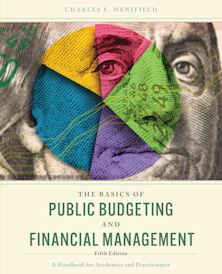- Home
- ACADEMIC
- Politics & International Relations
- Public Management, Administration and Policy
- . . . And Communications for All
. . . And Communications for All
A Policy Agenda for a New Administration
Amit M. Schejter (Anthology Editor) , Marvin Ammori (Contributor) , Leonard M. Baynes (Contributor) , Robert M. Frieden (Contributor) , Ellen P. Goodman (Contributor) , Heather E. Hudson (Contributor) , Krishna Jayakar (Contributor) , Robert W. McChesney (Contributor) , Kathryn Montgomery (Contributor) , Philip M. Napoli (Contributor) , Jon Peha (Contributor) , Jorge Reina Schement (Contributor) , Sharon L. Strover (Contributor) , Andrea H. Tapia (Contributor) , Richard D. Taylor (Contributor) , Ernest Wilson III (Contributor)
. . . And Communications for All
A Policy Agenda for a New Administration
Amit M. Schejter (Anthology Editor) , Marvin Ammori (Contributor) , Leonard M. Baynes (Contributor) , Robert M. Frieden (Contributor) , Ellen P. Goodman (Contributor) , Heather E. Hudson (Contributor) , Krishna Jayakar (Contributor) , Robert W. McChesney (Contributor) , Kathryn Montgomery (Contributor) , Philip M. Napoli (Contributor) , Jon Peha (Contributor) , Jorge Reina Schement (Contributor) , Sharon L. Strover (Contributor) , Andrea H. Tapia (Contributor) , Richard D. Taylor (Contributor) , Ernest Wilson III (Contributor)
For information on how we process your data, read our Privacy Policy
Thank you. We will email you when this book is available to order
You must sign in to add this item to your wishlist. Please sign in or create an account
Description
In . . . And Communications for All, 16 leading communications policy scholars present a comprehensive telecommunications policy agenda for the new federal administration. This agenda emphasizes the potential of information technologies to improve democratic discourse, social responsibility, and the quality of life along with the means by which it can be made available to all Americans. Schejter has assembled an analysis of the reasons for the failure of the Telecommunications Act of 1996, and offers an international benchmark for the future of telecommunications.
Addressing a range of topics, including network neutrality, rural connectivity, media ownership, minority ownership, spectrum policy, universal broadband policy, and media for children, it articulates a comprehensive vision for the United States as a twenty-first-century information society that is both internally inclusive and globally competitive.
Table of Contents
Part 2 Frameworks
Chapter 3 Broadband, Internet, and Universal Service: Challenges to the Social Contract of the Twenty-First Century
Chapter 4 Digital Media, Modern Democracy, and Our Truncated National Debate
Chapter 5 Public Scholarship and the Communications Policy Agenda
Chapter 6 International Benchmarks: The Crisis in U.S. Communications Policy through a Comparative Lens
Part 7 Infastructures and Industries
Chapter 8 Competition and Investment in Wireline Broadband
Chapter 9 U.S. Cable TV Policy: Managing the Transition to Broadband
Chapter 10 A Spectrum Policy Agenda
Chapter 11 The Way Forward for Wireless
Chapter 12 Rethinking the Media Ownership Policy Agenda
Part 13 Access
Chapter 14 Universal Service
Chapter 15 America's Forgotten Challenge: Rural Access
Chapter 16 Municipal Broadband
Chapter 17 The Future of the E-Rate: U.S. Universal Service Fund Support for Public Access and Social Services
Part 18 Content
Chapter 19 Public Service Media 2.0
Chapter 20 Creating a Media Policy Agenda for the Digital Generation
Chapter 21 Race and Media: Several Key Proposals for the Next Administration
Product details
| Published | Feb 16 2009 |
|---|---|
| Format | Ebook (Epub & Mobi) |
| Edition | 1st |
| Extent | 374 |
| ISBN | 9780739134832 |
| Imprint | Lexington Books |
| Publisher | Bloomsbury Publishing |
About the contributors
Reviews
-
Few issues are more fundamental to the healthy functioning of our democracy than the existence of an open and diverse media system. For too long Communication scholars have been absent from ongoing policy debates about how to best achieve this goal. This timely and excellent collection of essays, written by some of the leading scholars in the field, goes a long way to remedying this abdication of our public interest obligation.
Michael X. Delli Carpini, University of Pennsylvania
-
These respected authors serve up a rich banquet of food for thought. It should be required reading for policymakers - and those who want to influence them, as well. Just as innovative technologies will continue to drive our economic growth, the creative proposals in this book should drive innovation in developing the communications agenda to meet the new challenges we face.
The Honorable Jonathan S. Adelstein
-
It is remarkable to find a book that genuinely integrates the work of contributing authors. Amit Schejter has accomplished that in this work, bringing together many of the brightest minds in communications policy to make a forceful set of policy recommendations on the full range of current issues, from wireline regulation and universal service to public television.
David Waterman, professor, Department of Telecommunications, Indiana University
-
There is a lot of useful insight and some original ideas here.
Chris Sterling, Communication Booknotes Quarterly
-
[A] must-read for policy makers, educators, industry leaders, and others interested in bringing US communications into the 21st century. . . . Highly recommended.
Choice Reviews
-
And Communications for All offers many essential policy adjustments that the new administration should implement to promote a more affordable, open communications network that advances democracy and enhances freedom.
Gene Kimmelman, Vice President, Federal and International Affairs, Consumer Union



































